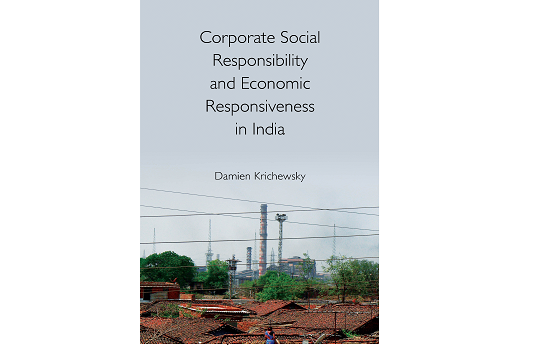Krichewsky, D. (2019). Corporate Social Responsibility and Economic Responsiveness in India. Cambridge University Press.

ABSTRACT
This book provides a timely contribution to the study of Corporate Social Responsibility (CSR) and state-business relations in India. The development of CSR as a new component of business-society interplays has triggered intense debates and controversies. Corporate actors, governments, and other CSR advocates describe CSR as a promising opportunity to transform companies from societal problem-makers into societal problem-solvers. Conversely, critical commentators denounce CSR either as ‘window-dressing’, which hides corporate greed behind shallow commitments to social justice and environmental sustainability , or as a pernicious means used by companies to sideline regulatory constraints and manage business-relevant public affairs in their own terms. Departing from these controversies, this book mobilizes an original theoretical framework to examine empirically how CSR emerges from and retroacts on growing structural tensions between profit-making and competing collective values and interests in contemporary India. It shows at a macro-sociological level and with detailed case studies (cement industry; CSR public policies) that, paradoxically, CSR enhances the autonomy of the economy by making profit-driven economic processes more responsive to non-economic concerns raised in politics, law, morality, and other spheres of modern society.
CONTENT
List of tables and maps
List of abbreviations
Preface
1. Introduction
2. CSR, functional differentiation, and the problem of economic responsiveness
3. Economic differentiation and the rise of India’s ‘embedded’ corporate capitalism
4. Increasing functional differentiation and the rise of Corporate Social Responsibility
5. CSR at work: economic responsiveness through risk management
6. India’s CSR public policies and the politics of economic responsiveness
7. Conclusion
References
Index






